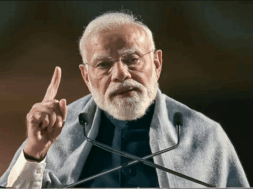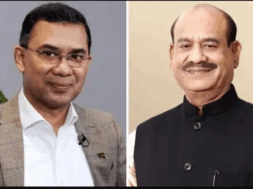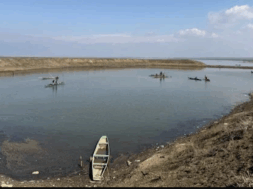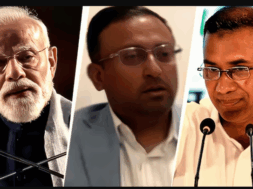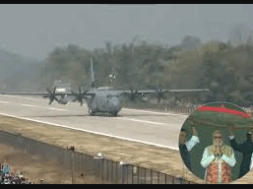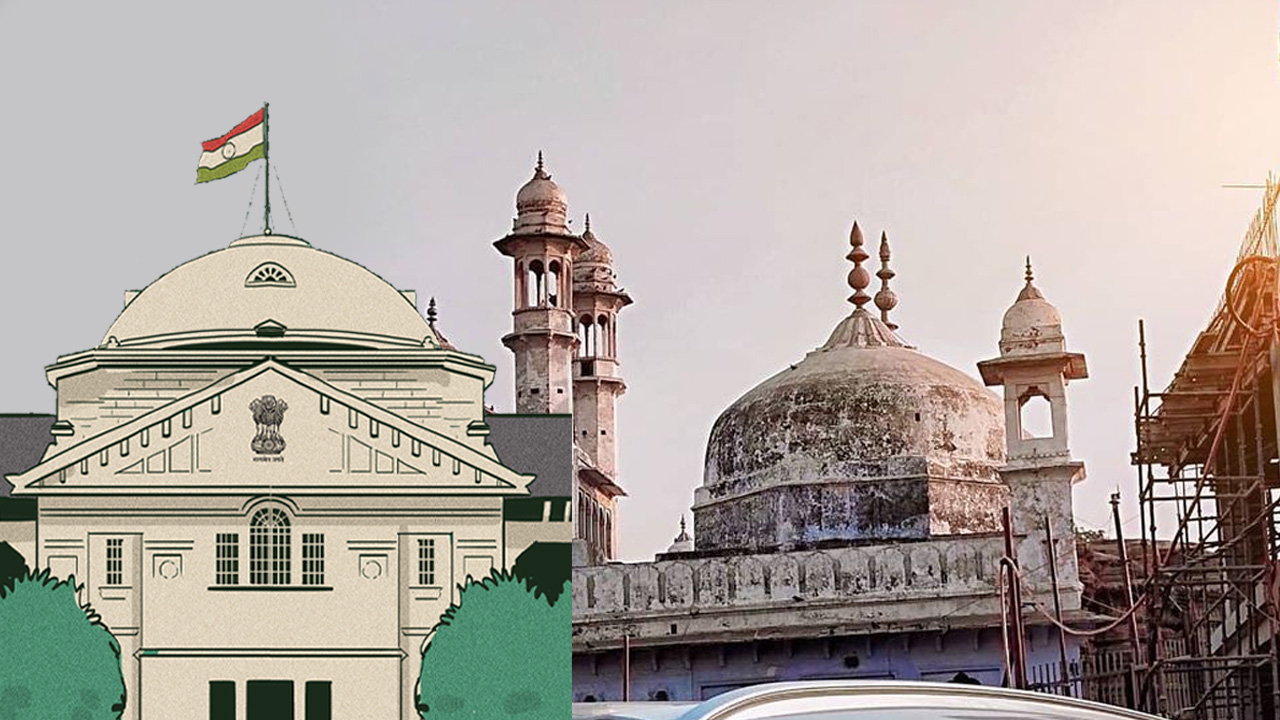
Allahabad HC Upheld District Court Orders, ASI Survey of Gyanvapi Mosque to Resume on Friday
Manas Dasgupta
NEW DELHI, Aug 3: The Allahabad High Court on Thursday upheld the order of the Varanasi district court for conducting a “scientific survey” of the Gyanvapi Mosque, adjacent to the famous Kashi Vishwanath temple, by the Archaeological Survey of India (ASI) after rejecting the challenge of the district court’s order by the Anjuman Intezamia Masjid Committee, which manages the mosque.
Immediately after the High Court’s order, the Anjuman Intezamia Masjid committee moved the Supreme Court against the Allahabad High Court order permitting the ASI survey at the Gyanvapi mosque.
The matter was mentioned by advocate Nizam Pasha before Chief Justice D. Y. Chandrachud, who was heading a five-judge constitution Bench hearing the arguments in the Article 370 issue and was rising for the day, seeking urgent hearing.
“The Allahabad High Court has passed an order today. We have filed an SLP against the order. I have sent an email (seeking urgent hearing). Let them not proceed with the survey… ,” Pasha said. The CJI said, “I will look at the email right away.”
One of the parties from the Hindu side has also filed a caveat in the apex court saying that no orders be passed without hearing them in the matter.
Earlier, the Varanasi district magistrate S. Rajalingam had confirmed that the ASI had informed the administration that it would commence the survey of the mosque premises (except the ‘wazukhana’) from Friday itself. “We will provided all the needed assistance to the ASI,” Rajalingam added.
The High Court order said the district court order was just and proper, and no interference was warranted. It also said the survey was necessary for justice. While upholding the lower court’s order on the scientific survey in which the district court had asked the ASI to file a report on whether the Gyanvapi mosque “structure” was “constructed over a pre-existing structure of a Hindu temple”, the Bench of Chief Justice Pritinker Diwaker said once the experts in the subject matter had made it clear that the survey would not damage anything, there was no room left for doubt.
“Once the Department of Archaeology and learned Senior Counsel representing the Department have made their stand clear that no damage is going to be caused to the property in question, this Court has no reason to doubt their statements and most importantly, the affidavit filed by the officer of the ASI explaining the circumstances,” the court stated.
The court added that the scientific survey/investigation proposed to be carried out by the commission was “necessary in the interest of justice and shall benefit the plaintiffs and defendants alike and aid the trial court in arriving at a just decision.” “…..The present petition lacks substance and is liable to be dismissed,” the order reads, adding that the dismissal of this writ petition did not affect the right of the parties to the suit to remain present at the time of the scientific investigation by the ASI.
On July 27, at the end of a three-day-long marathon hearing on the plea filed by the Anjuman Intezamia Masjid Committee challenging the Varanasi District Judge’s order of July 21 on the conduct of a survey of the mosque by the ASI, the High Court asked the government and the counsels of the petitioners from all sides why the matter had been delayed for the past two years.
Following its remark, the High Court in its final order observed that the proceeding of the suit had been lingering for long, and it would be appropriate for the concerned court to conclude the proceedings expeditiously, without granting “unnecessary adjournments” to either of the parties.
The Varanasi district court order was issued on July 21 and was challenged by the Anjuman Intezamia Masjid Committee. Chief Justice Pritinker Diwaker had reserved the order on the committee’s petition on July 27 after hearing the counsels for both parties.
The Hindu petitioners have claimed that a temple existed earlier at the site and it was demolished in the 17th Century on the orders of Mughal emperor Aurangzeb. The survey by the Archaeological Survey of India had started on July 24 following the lower court’s orders. But within hours it was put on hold by the Supreme Court when the mosque committee approached it, arguing that any digging might bring down the 1000-year-old structure. The committee had also argued that any such survey was in violation of existing laws around religious places.
The mosque’s ‘wazukhana’ — where a structure that the petitioners claimed was a ‘shivling’ — will not be within the ambit of the fresh survey in keeping with a Supreme Court order.
The ASI survey was ordered by the Varanasi court based on a petition by four women who claimed it was the only way to determine whether the landmark mosque was built after razing a Hindu temple.
Advocate Vishnu Shankar Jain, who represented the Hindu side, told reporters that the high court said the district court’s order on the ASI survey would become effective immediately. “This is a very important decision by the high court. The argument by the Anjuman Intezamia that the survey will affect the structure (of the mosque) has been rejected by the court, which has dismissed its petition,” he said.
The centre had earlier assured the Supreme Court that the survey would not alter the structure in any way and stressed that “not a brick has been removed nor is it planned.” Solicitor General of India Tushar Mehta had said the survey plan included only measurement, photography and radar studies.
The Gyanvapi mosque had hit headlines in 2021 after a group of women approached a lower court in Varanasi for permission to worship Hindu deities in the Gyanvapi complex on all days of the year. In April last year, the court ordered a video survey of the complex based on this petition. When the survey was conducted in May, a structure was discovered that the petitioners claimed was a ‘shivling.’
The mosque management committee, however, said the structure was part of a fountain in the ‘wazukhana’, which is an area filled with water where people wash their hands and feet before praying. Keeping the sensitivity of the issue in mind, the Supreme Court had ordered the sealing of the ‘shivling’ area the same month.
Located in Prime Minister Narendra Modi’s constituency, the Gyanvapi mosque is one of several mosques that some believe were built on the ruins of Hindu temples. It was one of the three temple-mosque disputes, besides Ayodhya and Mathura, which the BJP had raised in the 1980s and 1990s.



